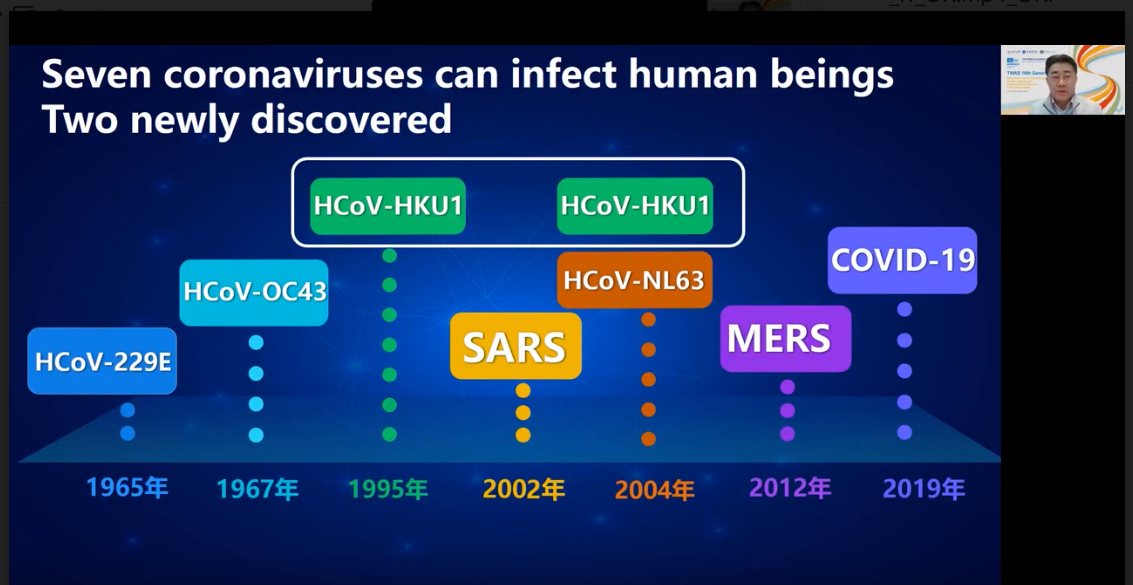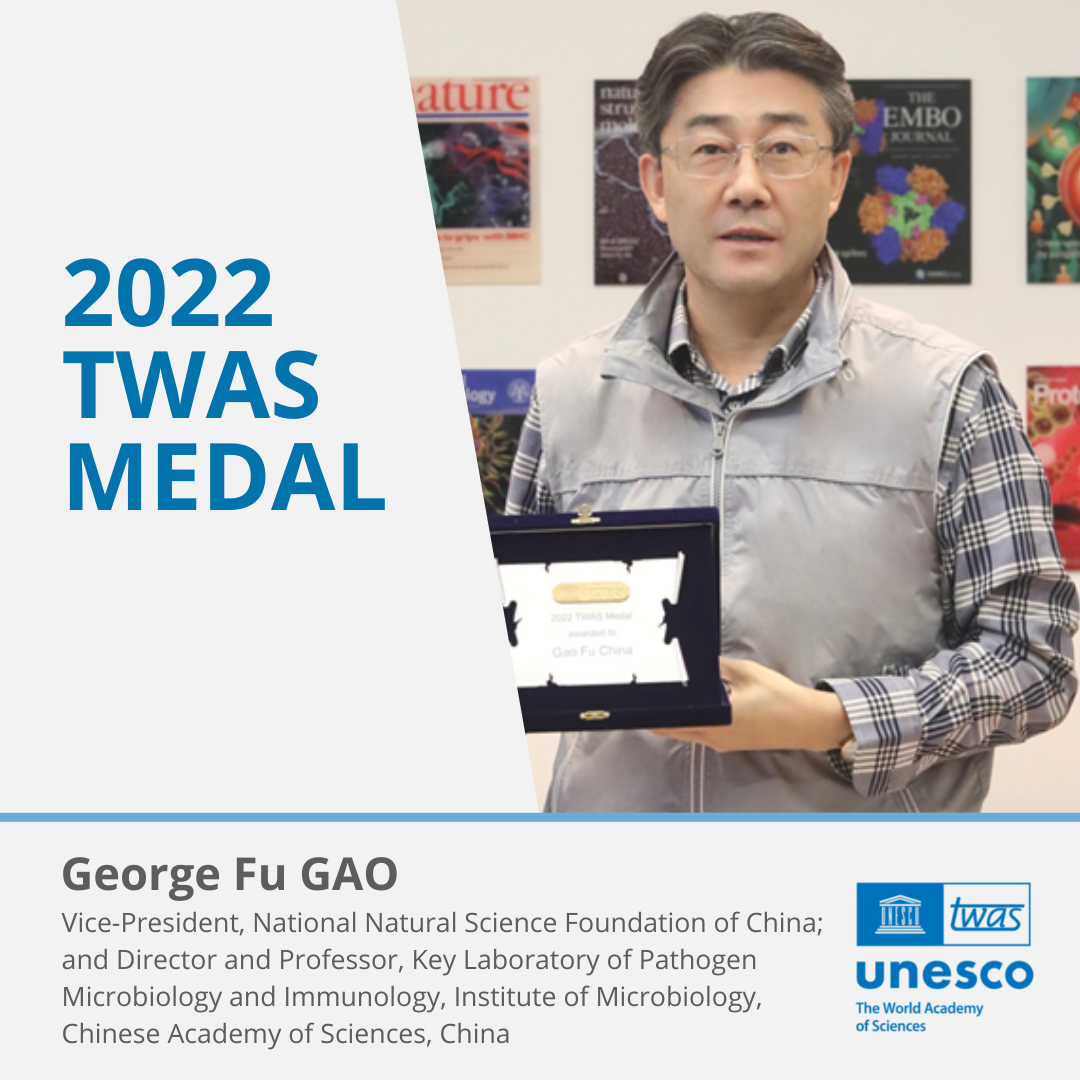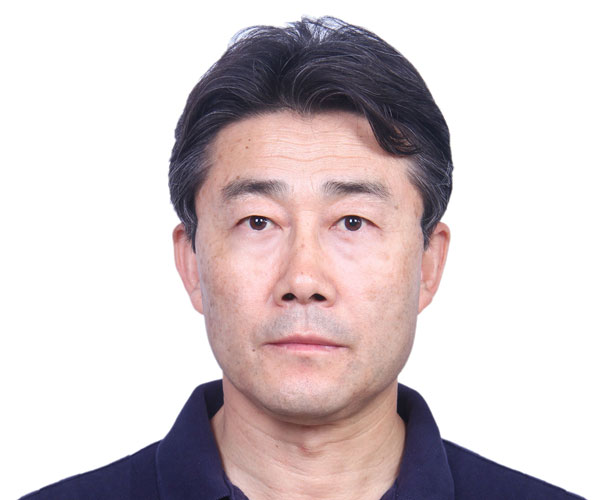
The fight against COVID-19 relies on strong science and excellent scientists. George Fu Gao, a Professor and Director of the Chinese Academy of Sciences Key Laboratory of Pathogen Microbiology and Immunology, a TWAS Fellow since 2014, is one such scientist. And to honour his work this week, he received a TWAS Medal at the TWAS 16th General Conference.
As a leading scholar in the field of virology and immunology, Gao is one of four recipients of the prestigious TWAS Medals, that the Academy has routinely bestowed to its most accomplished members since 1996. The other 2022 TWAS Medallists are Rajaâ Cherkaoui El Moursli, Professor of Physics, University Mohammed V, Rabat, Morocco, and a TWAS Fellow since 2018; Sok Ching Cheong, Deputy Chief Scientific Officer at Cancer Research Malaysia, a former TWAS Young Affiliates Network member, now a TWAS Alumnus; and Bruce M. Alberts, holder of the Chancellor's Leadership Chair in Biochemistry and Biophysics for Science and Education at the University of California, San Francisco, and a TWAS Fellow since 2001.
The announcement was given on 21 November, soon afterwards the Opening Ceremony that marked the start of the TWAS 16th General Conference, which took place in Hangzhou, China, on 21–24 November 2022.
On 23 November, Gao—an expert on public health policies and global health strategies, and a member of the US National Academy of Sciences, the UK Royal Society, and the German National Academy of Sciences, Leopoldina—presented the results of his research.
His work explores the transmission of harmful microorganisms across hosts to clarify the infection mechanisms and host cellular immunity. Between August 2017 and July 2022, he was the Director-General of the Chinese Centre for Disease Control and Prevention and under his guidance the team was the first to isolate SARS-CoV-2 after the COVID-19 outbreak, sequencing the entire genome and establishing the main epidemiological parameters such as its transmission route and incubation period.
In his lecture on "COVID-19 and STEM", Gao examined the contribution of science, technology, engineering and medicine to the war against COVID-19, and tracked the history of the seven coronaviruses that can infect human beings identified since 1965. He also recalled how he and his group mentioned the risk of a novel coronavirus outbreak for the first time in January 2020 in articles published in medical journals The Lancet and The New England Journal of Medicine.
"We don't know when and where the next virus might come from initially, but we know that there will be another COVID-like disease soon," he added, mentioning a study he and his colleagues carried out in 2016, in which they foresaw a high chance of a pandemic outbreak in a close future—which is what happened four years later, in 2020.
However, he said, " ... there is also good news, as the international scientific community knows how to control the virus in emergency situations." There are three steps.
"One is implementing basic science to obtain answers to scientific questions; another step is to help the public to understand what scientists are doing, as this leads to involvement and compliance in emergency situations; and the third step is [establishing] strong leaderships within the administrations. Science must seek the truth, and the administration needs to be practical."
Science, technology, engineering and medicine have been instrumental in the fight against viruses, Gao said. "And while science provided us with many old-fashioned and new generation vaccines, technology, engineering and medicine are exploring new avenues in drug development, such as the use of antibodies, small molecules and even Chinese herbs from Chinese Traditional Medicine."
He ended with a warning for all: "We should work hard to reduce the diffusion of new pollutants, which are littering our seas." Human beings, animals and the environment are a single unit: unbalancing one of them leads to an unbalance of all.
Cristina Serra
Watch Prof. George Fu Gao's Medal Lecture video here:

